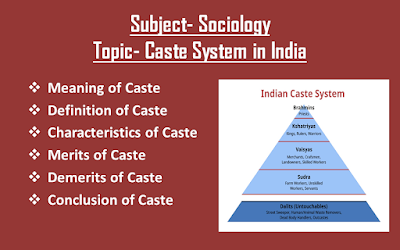Political Institutions- Meaning, Definitions and Functions
# Meaning of Political Institutions
Political institutions, also known as government, refer to the systems of power and authority that distribute and exercise power to maintain social order.
Political institution refers to a system of established social structures, norms, and organizations that shape the distribution and exercise of power within a society.
Modern governments consist of various political institutions, including heads of state, legislatures, and political parties.
➢ Two concepts are especially critical to understanding the concept of political institutions are Power and Authority
(1) Concept of Power:- Power refers to the ability to influence or control outcomes, decisions, or behaviors. It has the capacity to shape policy, allocate resources, or enforce decisions. Power can manifest in three forms: coercive (force, violence), persuasive (influence, negotiation), or institutional (legitimate authority).
(2) Concept of Authority:- Authority refers to legitimate power that is, as rightful and just, recognized and accepted by others. It has the right to make decisions, enforce rules, or allocate resources. Authority is derived from one's position, expertise, tradition, or legal mandate.
# Types of Authority:
(1) Traditional authority: (based on custom or heritage)
(2) Charismatic authority: (based on personal charm or leadership)
(3) Rational-legal authority: (based on rules, laws, and procedures)
# Definition of Political Institutions
1. According to Max Weber:- "The state is a human community that (successfully) claims the monopoly of the legitimate use of physical force within a given territory."
2. According to Talcott Parsons:- "Political institutions are the complex of organizations, norms, and values that shape the behavior of individuals and groups in the political sphere."
3. According to Emile Durkheim:- "Political institutions are the social structures that embody the collective consciousness of a society and regulate its political life."
4. According to Karl Marx:- "Political institutions are the superstructures that arise from and serve to maintain the economic base of society, protecting the interests of the ruling class.
# Functions of Political Institutions
1. Legitimacy:- Providing a framework for governance and decision-making, ensuring that power is exercised in a legitimate and accepted manner.
2. Representation:- Giving citizens a voice in government through elected representatives, political parties, or interest groups.
3. Policy-making:- Creating, implementing, and enforcing laws, policies, and regulations to address societal needs and issues.
4. Resource allocation:- Managing and distributing resources, such as budgeting, taxation, and public goods provision.
5. Conflict resolution:- Resolving disputes and conflicts through formal processes, like courts, or informal mechanisms, like negotiation and mediation.
6. Social order:- Maintaining stability, security, and social cohesion by enforcing laws, norms, and values.
7. Accountability:- Holding leaders and officials accountable for their actions, decisions, and performance.
8. Protection of rights:- Safeguarding citizens' rights, freedoms, and interests, such as individual rights, property rights, and social welfare.
9. Promoting social change:- Facilitating social reform, innovation, and progress through policy initiatives and public engagement.
10. International relations:- Representing the nation in global affairs, diplomacy, and international agreements.
Watch video on YouTube





